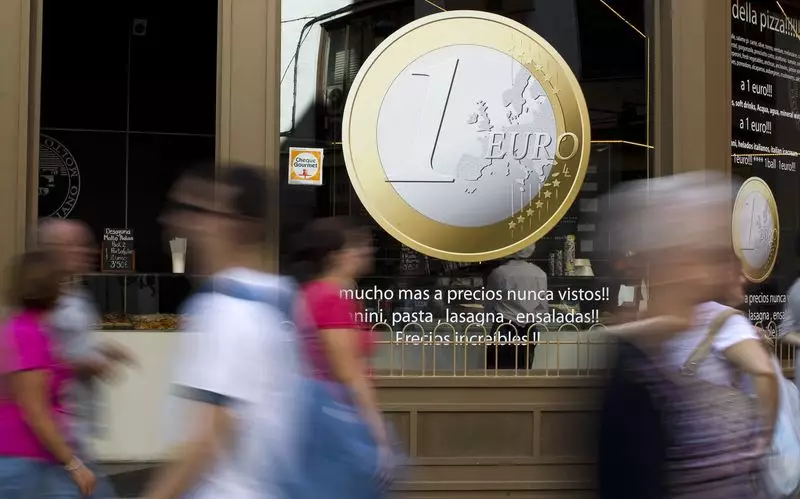The economic landscape of the Euro Zone is currently characterized by a paradox: while households are accumulating significant savings, this accumulation is inhibiting consumer spending, which is crucial for economic growth. According to insights from the European Central Bank (ECB), families in the Euro area increased their saving rate to around 15.7% of disposable income in the second quarter of last year. This figure notably exceeds pre-pandemic levels of approximately 12% to 13%, indicating a shift in consumer behavior. The ECB highlights that the high savings rate, while slightly expected to decrease in the coming months, remains a reflection of economic uncertainties and an ongoing desire among households to recoup wealth lost during the inflation surge of 2021 and 2022.
High inflation has been the focal point of economic discussions recently, particularly within the Euro Zone where it has significantly affected household wealth. The ECB pointed out that surging inflation has, over the past two years, led to a decline in the real net wealth of households. This scenario has spurred households to save more as they aspire to rebuild their financial stability. The motivation to save seen today stems not only from a protective instinct against the backdrop of economic volatility but also the compounding effect of diminishing purchasing power. As households grapple with the reality of higher prices, the impetus to limit spending becomes more pronounced, complicating the ECB’s forecasts of a consumer-led recovery.
Despite the current high savings, the ECB remains cautiously optimistic about the potential for consumer spending to rebound. They suggest that a gradual downtick in the savings rate, combined with continued increases in real labor income, will eventually create a favorable environment for consumption. Improved real incomes might enhance household confidence and, subsequently, their willingness to spend. However, the timing and extent of this anticipated shift remain uncertain. The ECB’s predictions underscore a delicate balance—while households have the capacity to spend more, the psychological barriers erected by recent economic challenges may delay this behavior.
The implications of ongoing high savings can ripple through the broader Euro Zone economy. If the trend persists, economic growth could stagnate, remaining just above zero as observed in the past year. This stagnation poses considerable challenges for policymakers who rely on consumer spending to stimulate economic activity. The inherent risk lies in a prolonged cycle where high savings discourage spending, further dampening growth and perpetuating economic sluggishness. Ultimately, a gradual shift in consumer attitudes, bolstered by rising incomes and more stable economic conditions, may be necessary to ignite a robust recovery in consumption and energize the broader economy.
The current saving behaviors of Euro Zone households reflect a complicated interplay of economic pressures stemming from inflation and real wealth decline. While high savings rates may initially seem beneficial, they could hinder the necessary consumption growth needed to revive the economy. The ECB’s optimistic outlook for future consumption recovery hinges on various factors, including real income growth and changing consumer mindsets. As the Euro Zone navigates these economic challenges, understanding the relationship between savings, spending, and economic growth will be crucial for policymakers aiming to reinvigorate the region’s economy.

